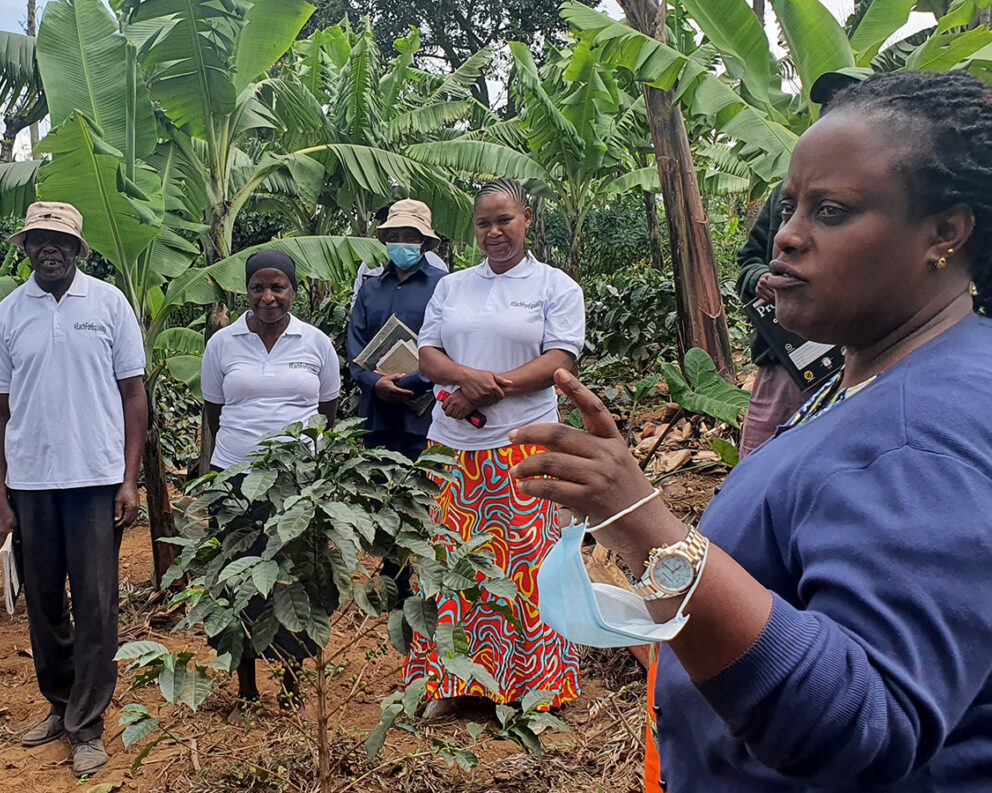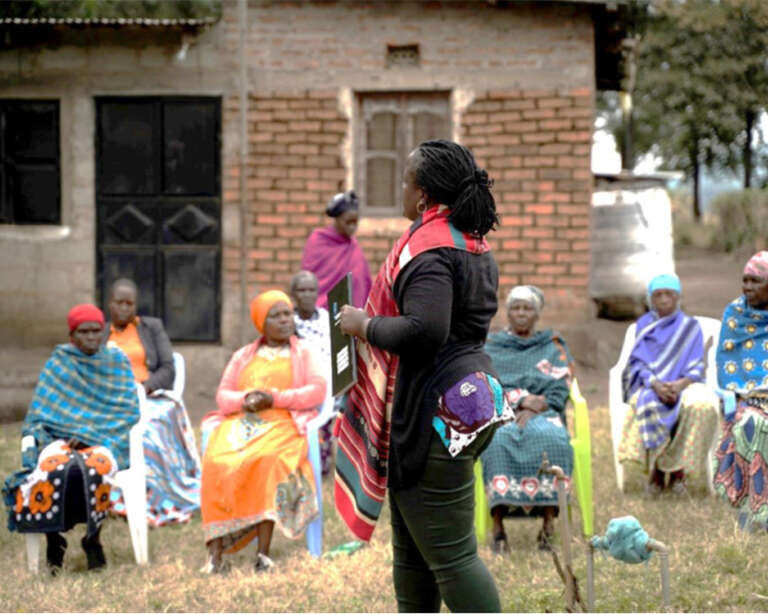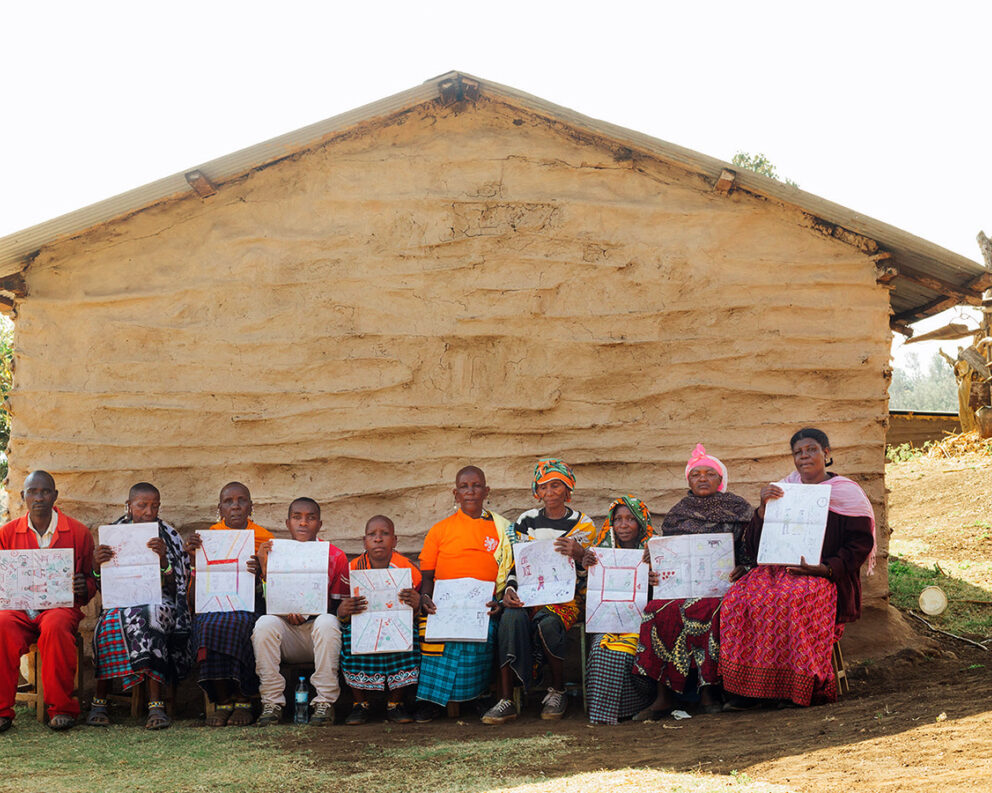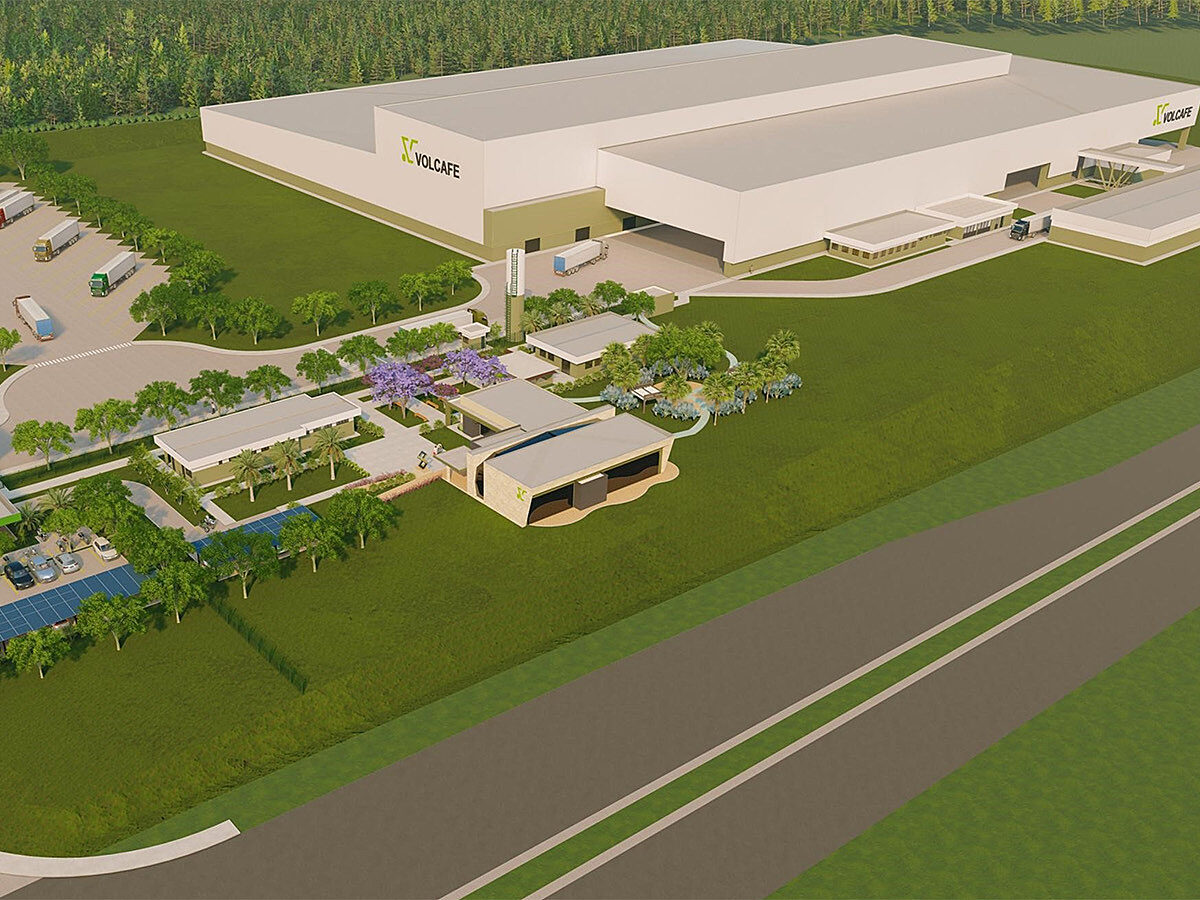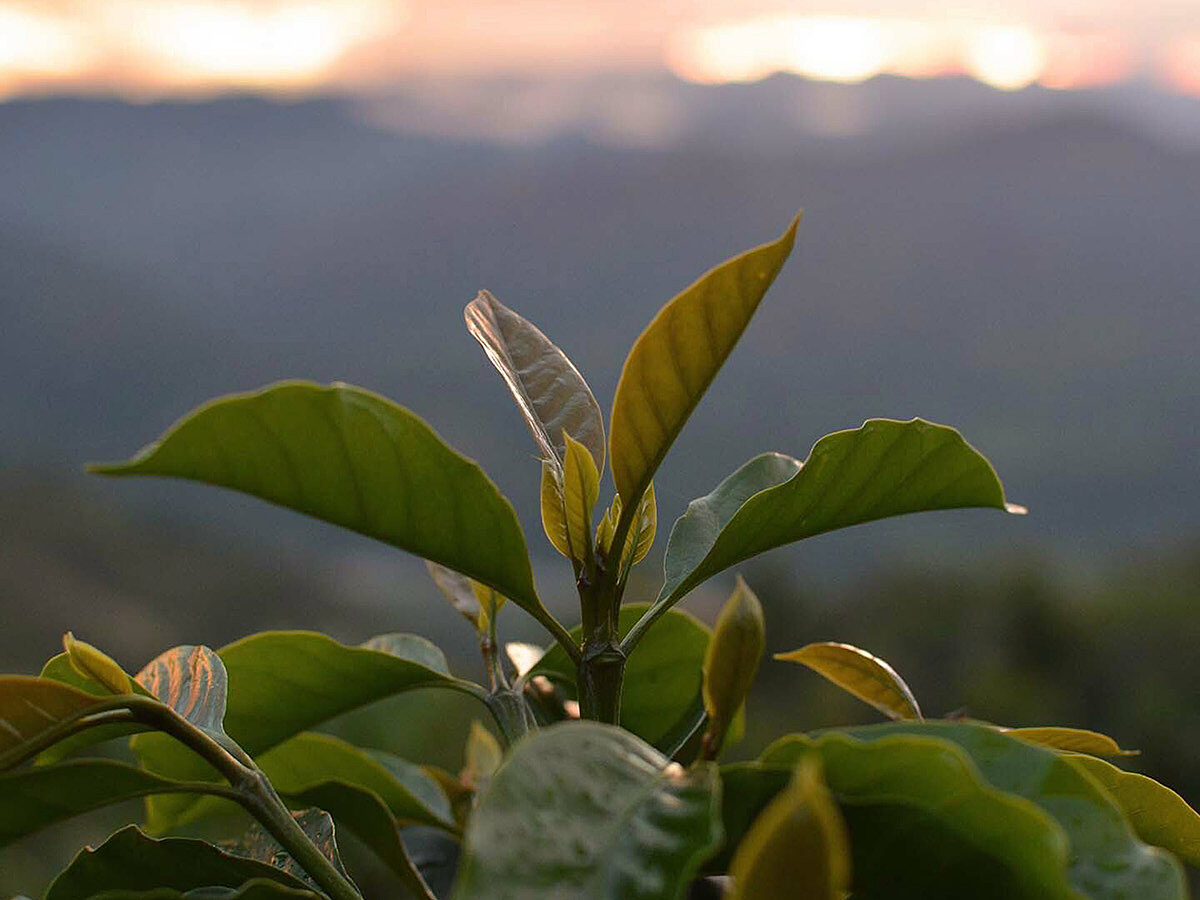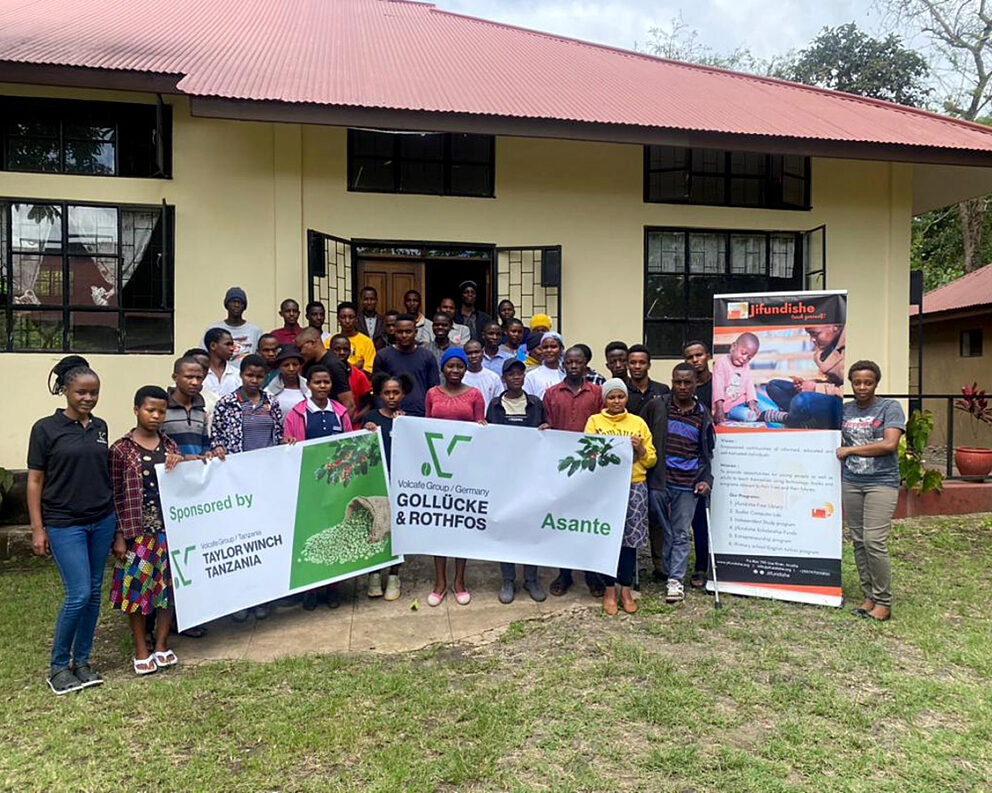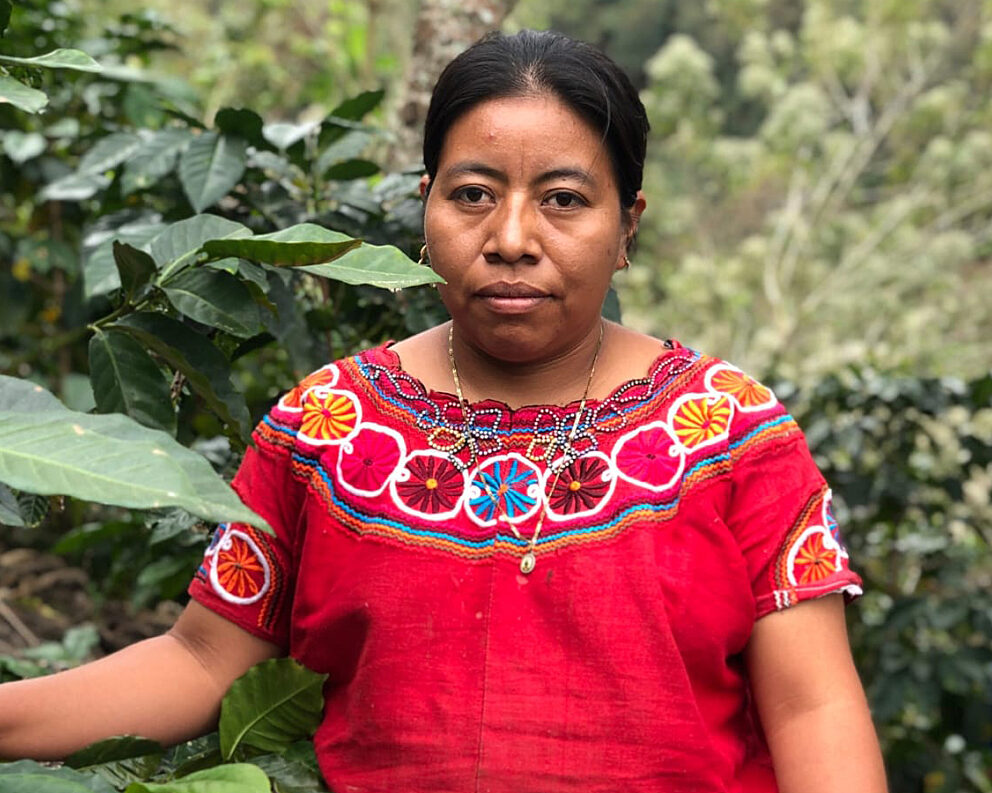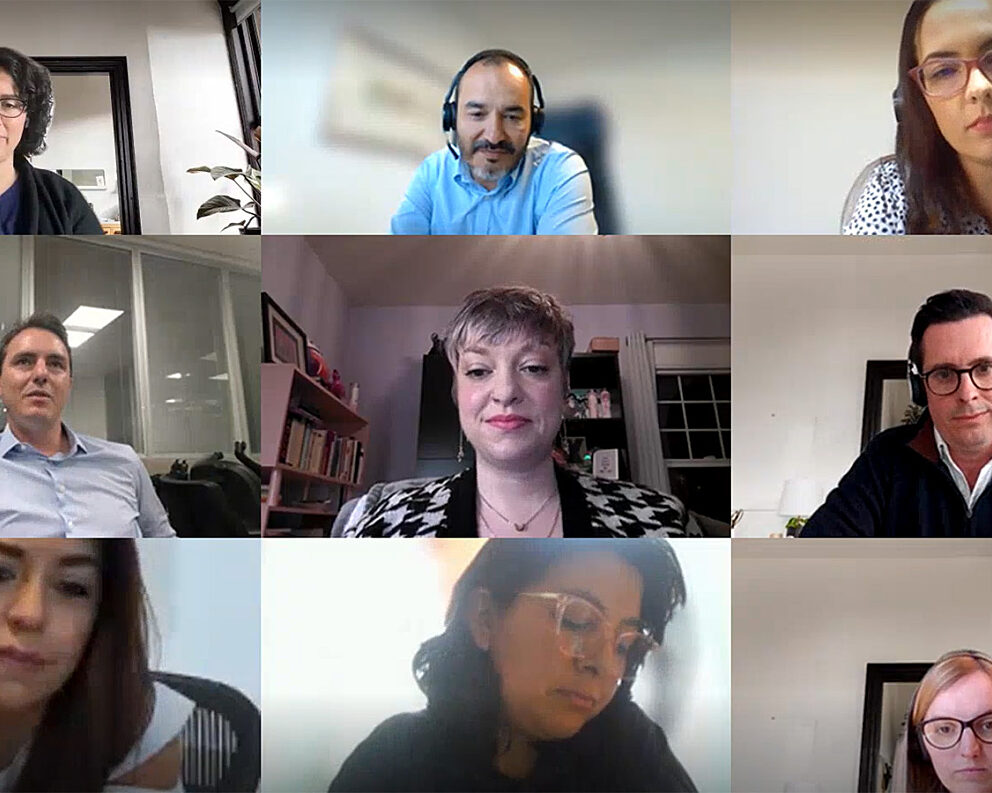A shared vision in Tanzania
Gender empowerment
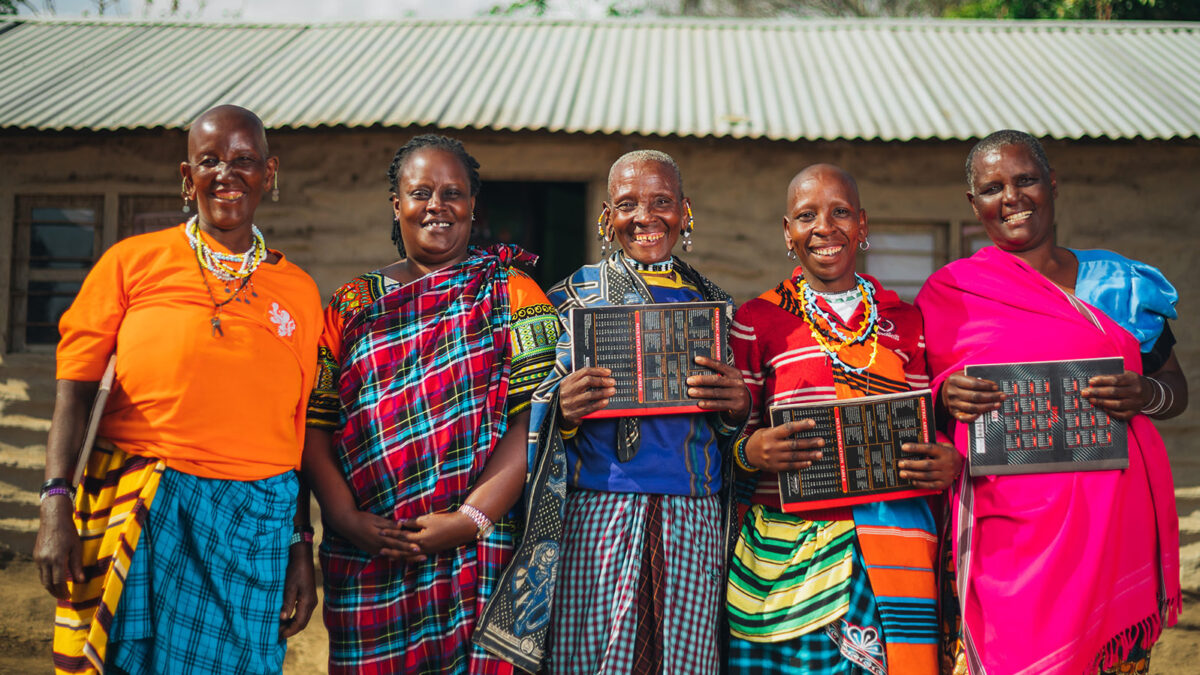
Volcafe’s Grace Murungi (second from left) is promoting gender equality through a training model called GALS. These Maasai women became GALS champions. Image: Taylor Winch Tanzania
A programme enables men and women to realise a personal vision for their lives and farms.
Quick facts
Country: Tanzania
Objectives: Promote gender equity through training programme that supports men and women farmers to define and realise a personal vision for their lives and farms; Support the establishment of locally funded savings associations that farmers contribute to and jointly govern, providing access to finances to enable the fulfilment of their personal visions
Timeline: 2018 onwards
Impact: As part of the GALS programme, 40 clusters – each comprised of 20 households – have organised into local savings associations in several Tanzanian coffee regions, with 60 more clusters currently starting up. As things stand, 1,800 farming households will be involved. GALS champions, both men and women, have emerged as leaders of change in their communities.
In Tanzania, Volcafe’s local company (Taylor Winch Tanzania) is running a programme to change the dynamics around gender equity in five coffee-growing regions. Combining aspects of the GALS and VSLA methodologies (more on those in a moment!), the programme will soon reach 1,800 households and promotes a sustainable vision of community-driven empowerment.
GALS – short for Gender Action Learning System – is a gender equality training model that engages men and women in an exercise to define, then realise, their personal and farming goals. Developed by NGOs and researchers over the last two decades, GALS in different forms has been used to promote gender justice by at least 100,000 women and men worldwide, including thousands of coffee farmers. It can be fully self-sustaining as part of longer-term investment in a socially responsible business model.
“Women and men develop their individual visions for change, with achievable targets and road maps to move towards these visions, based on analysis of their current situation, past achievements and what they perceive to be the opportunities, strengths and challenges they face,” explains Grace Murungi, Northern Region Sustainability Manager with Volcafe in Tanzania, who coordinates the programme.
“Starting with the individual rather than households or groups enables true consensus to be negotiated on the basis of mutual respect for the visions of others, rather than imposing artificial consensus just for a ‘peaceful life’. It also enables participation of youth and single people as part of the process,” notes Murungi.
The visions that participating men and women create often focus on improvements to their farms and livelihoods – acquiring a cow, for instance, can also provide access to manure, a fertiliser that in turn improves yields and quality. Shifts in perspective on gender also emerge from the GALS approach: a recurring theme in the visions is women and men working together in the community to achieve those visions.
The programme also supports the establishment of self- or locally funded farmer groups where these did not previously exist. By mixing elements of the Village Savings and Loan Association (VSLA) approach with GALS, farmers are creating local lending facilities they themselves can draw on.
These village-level savings schemes see the participating members (clusters of 20 households) contributing to the fund each week. Farmers can then take loans from the fund to support the achievement of the visions identified through the GALS approach. In essence, the men and women in these households take a joint stake in supporting one another to fulfil their visions for a better life.
The main drivers are GALS practitioners or ‘champions’ – women and men in communities who use the methodology to change their own lives and share what they learn with others.
Volcafe’s initial roll-out of the GALS programme was supported by Strauss Coffee, a leading coffee company. Noting the early successes, AgDevCo, a specialist investor in African agribusiness that supports small- and medium-sized enterprises, provided support to extend the programme across southern Tanzania.
Sandi Roberts, who headed AgDevCo’s Smallholder Development Unit, shared her impression of the work: “The GALS finance model is the most effective micro-finance model I have seen and is critical to the success of the model… [M]embers make weekly contributions in exchange for shares. Anyone who wants to take out a loan must have a guarantor within the group and a purpose that is linked to their farm goals, such as hiring labour or buying coffee seedlings to replace old trees. Central to the success of this loan mechanism is the fact that members don’t cash out annually, reflecting the longer-term mindset GALS wants to foster.”
Farmers are creating local lending facilities they themselves can draw on
To date, the GALS programme has supported 40 clusters – each representing 20 households – to organise themselves in coffee-growing regions of Tanzania. Twenty more clusters have just commenced and another 40 clusters are currently in formation. Soon, 1,800 households will be involved in the programme, encompassing female and male farmers in coffee zones as diverse as Arusha, Kilimanjaro and Tarime in the north, and Mbeya and Mbinga in the south.
The aim is to make the groups self-funding and financially sustainable beyond an initial one-year catalyst phase so that they can be integrated into the farmers’ business expansion models in the private sector. Some of the women involved in GALS trainings go on to perform leadership roles in cooperatives, where their roles allow them to further influence gender relations and counter gender inequalities.
“The main drivers are GALS practitioners or ‘champions’ – women and men in communities who use the methodology to change their own lives and share what they learn with others,” explains Murungi. “Champions are generally not existing leaders, but people who really need the methodology to turn their lives around – including people who cannot read and write, people with alcohol and violence issues. In many cases these people have made very dramatic changes in their lives and become the most effective leaders of change in others. Existing leaders are informed and encouraged to join and contribute their skills and resources as equal participants.”
Marie Renou-Ullrich, Head of Marketing and Communications, email hidden; JavaScript is required


